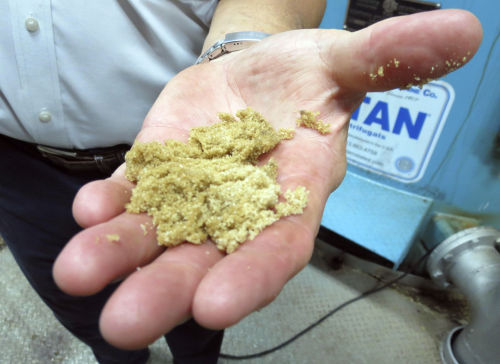Paying the right amount for a house
May 13, 2014TPSD moves toward tax proposition
May 13, 2014The International Trade Commission is working to preserve the American sugarcane farmer’s agricultural way of life by investigating petitions against subsidized sugar from Mexico entering the United States market.
The antidumping and countervailing duty petitions, which were filed in March, claim Mexico’s actions cost the U.S. sugar industry $1 billion this year. Sugar farmers are not the only party to feel the effects as the increase in Mexico’s exports cost taxpayers $278 million in 2013 in order to keep the market from collapsing, according to officials.
The ITC’s vote to pursue the investigation follows an April 18 announcement by the U.S. Department of Commerce on their intent to investigate the amount of surplus Mexican sugar that makes it way to America.
Jim Simon, manager of the American Sugar Cane League, which represents Louisiana’s sugar producers and millers, said the organization understands market changes but will not tolerate market manipulation and dumping.
“The Louisiana sugarcane industry is pleased with the ITC vote,” Simon said. “We had no choice but to bring our case to the ITC. If left unchecked, Mexico’s subsidized sugar production will overcome Louisiana’s 220-year-old industry, an industry that is vitally important to the economic, cultural and historic well-being of our state.”
The North American Free Trade Agreement allows Mexico to export sugar to the United States on a tariff-free and quota-free basis.
Phillip Hayes, spokesperson for the American Sugar Alliance, said the ITC’s decision validates sugar producers’ concerns about Mexico’s excessive dumping and subsidizing actions.
Hayes said Mexico’s questionable actions are eroding a “free and fair market,” and the NAFTA’s agreement does not give the Mexican industry the ability to export its surplus.
The NAFTA does not “permit the (Mexican government) to subsidize its sugar industry without regard to the impact of those subsidies on U.S. producers.”
“Mexico’s actions have harmed hardworking sugar producers as well as taxpayers,” Hayes said. “U.S. trade laws are designed to stop such injury, and we hope corrective actions will be taken soon before the situation deteriorates.”
American sugarcane farmers produced 1.6 million tons of raw sugar from 409,000 acres of cane in 2013. Cane production per acre totaled 34.4 tons, which yielded an average of 7,771 pounds of raw sugar per acre, according to information from the American Sugar Cane League.
While Louisiana’s sugar cane crops yielded high outputs in 2013, the financial performance of the harvest suffered from subsidized Mexican imports with crops dropping more than 25 percent to a worth of $750 million.
Although Mexico’s sugar industry is less efficient than the operations in America, Hayes said its market gains were fueled by dumping margins of 45 percent or more and a variety of subsidies.
The American market could have absorbed as much as 750,000 tons of Mexican sugar without the price being affected, but Mexico shipped more than 2.1 million tons of sugar to the states – an impact that has caused U.S. sugar prices to fall more than 50 percent since 2011.
Hayes said sugar producers forfeited sugar to the government because the price they could sell it for was below the floor price.
“Mexico oversupplied the market which caused a depression where sugar prices fell below the floor price,” Simon said. “If prices are too low, we have the ability to pay the USDA with sugar instead of cash.”
In a letter to the ITC, Senator David Vitter credited Louisiana as the second largest producer of sugarcane in the U.S. and highlighted the importance of the ITC’s investigation into Mexico’s illegal dumping.
He said while the Mexican government subsidizes sugar production, thousands of well-paying jobs and more than $2 billion in revenue are at stake in the United States.
“These jobs, and the economic activity they generate, are threatened by the illegal dumping of Mexican sugar into the U.S. market at prices significantly below prices in Mexico,” Vitter said in his letter to the ITC. “As U.S. sugar prices continue to fall while sugar imports from Mexico continue to rise, American sugar producers are seeking remedy under U.S. trade laws utilized by dozens of other U.S. industries threatened by the dumping of subsidized products in the U.S.”
Hayes was happy to hear the ITC’s determination of “reasonable indication that the U.S. sugar industry is materially injured” by Mexican imports subsidized and sold in the U.S. at less than fair value.
“It is clear the U.S. government recognizes there is a problem, and we believe the independent government process should proceed expeditiously without interruption,” he said.
American sugarcane farmers and taxpayers have felt the effects of Mexico’s surplus sugar coming through America, in particularly in south Louisiana. The International Trade Commission has found reasonable indication to investigate the amount of excess sugar Mexico is dumping into the U.S. in an attempt to stabilize the American sugar market.










